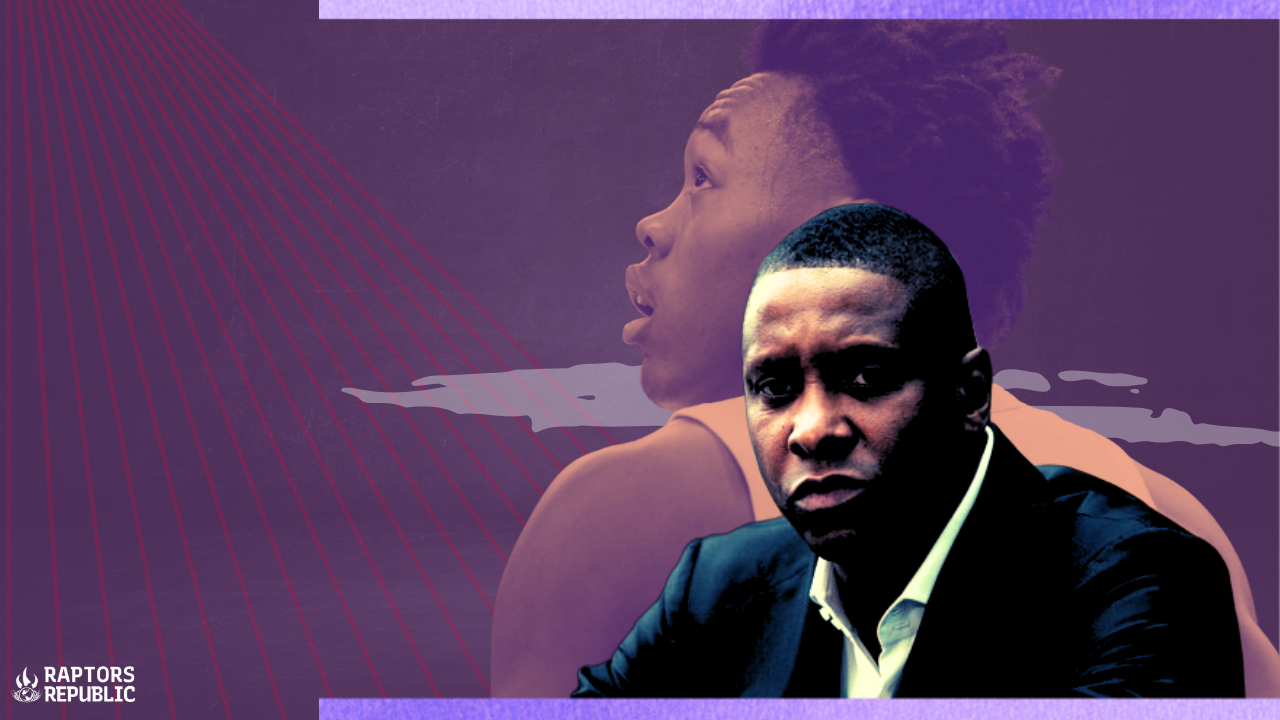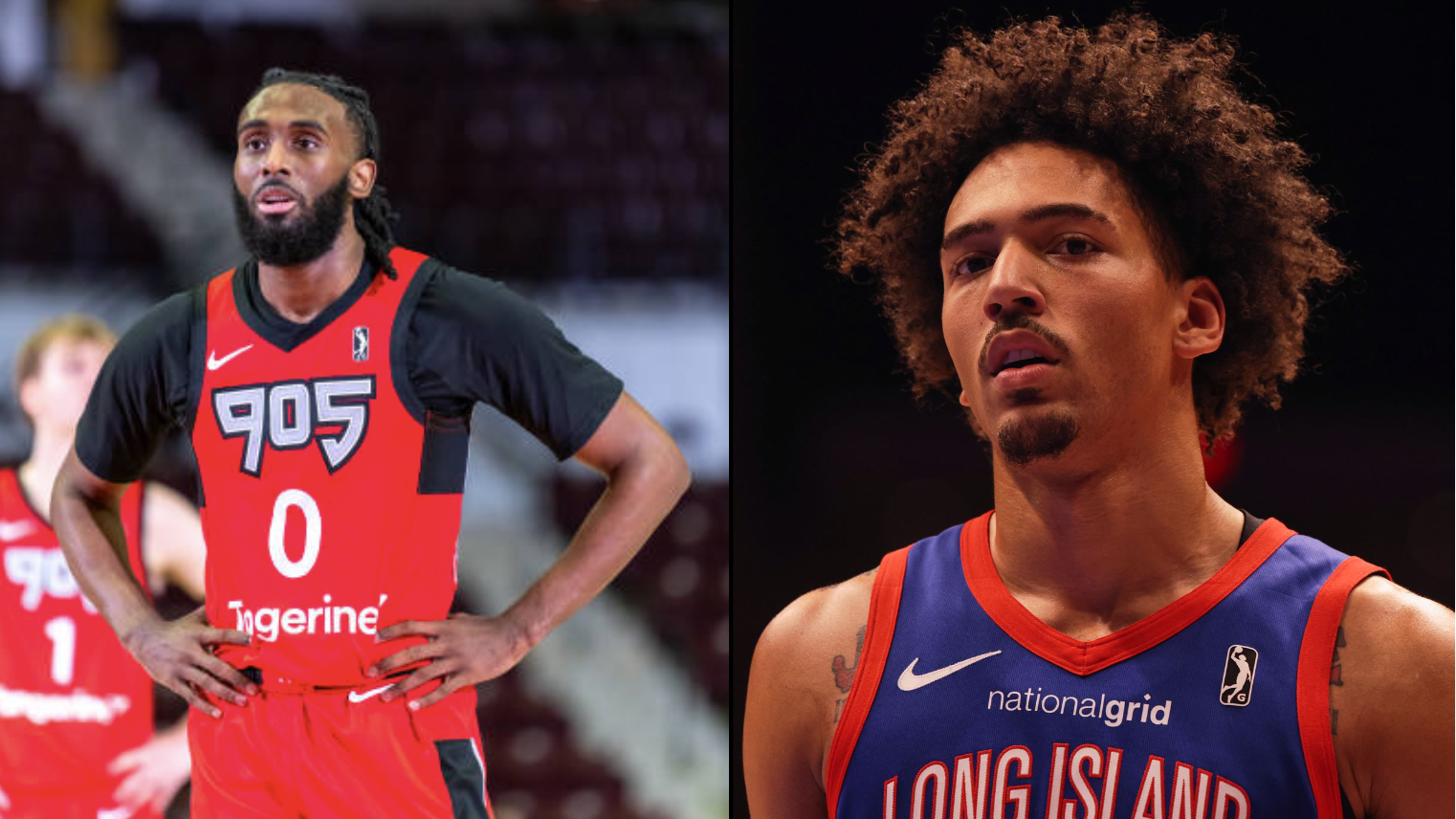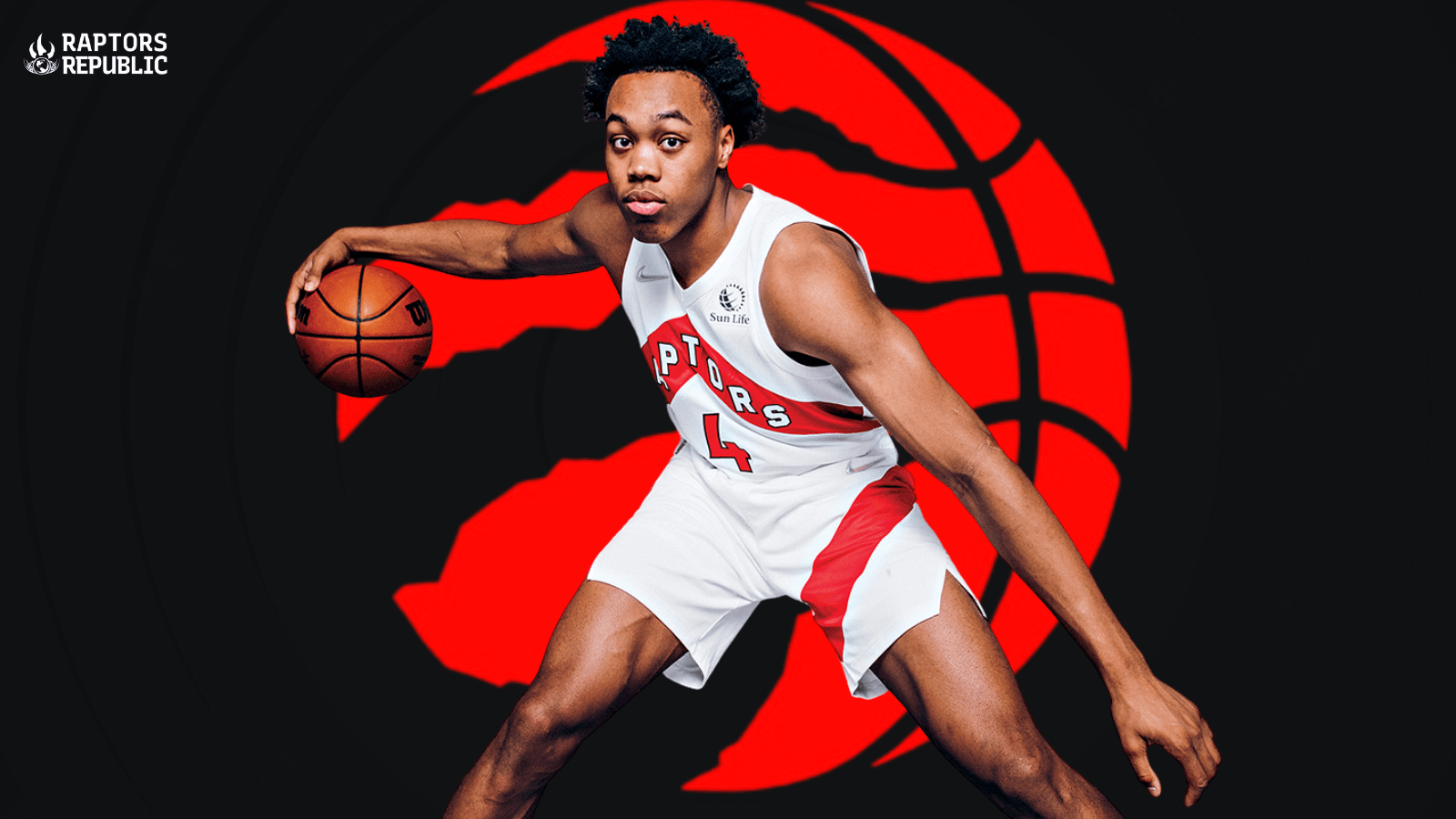*This was supposed to be a roundtable, but I got stood up. So it’s just me and you.

If you haven’t yet, let’s all take a collective exhale.
The trade tumult of the last three years is finally behind us. We can, now, sit comfortably on the sidelines and watch the conjecture and panic surge, the confusion swirl, and the hopes and dreams of other fanbases crash as the deadline approaches.
Nothing like an old ⏳ Instagram post to get the heart palpitations going.
No, not us. Not this time. Our heavy emotional lifting done weeks past. What remains is a, mostly, new and young band of ballers. The type of uncertainty we now face is much less volatile. It’s a soft, undulating metronome of hard lessons and exciting potential. Observation and patience gently cushioning our falls.
There is, however, always room for trades. Even for a rebuilding team with little to expect in the short-term. There’s still something; always; take your pick:
Arbitrage. Upgrades. Firesales. Leverage. Desperation. Good contracts. Ballooning ones. Prospects. Diamonds in the rough. Unhappy “situations”.
Toronto has plenty to consider come February 8th.
And, as is tradition, I asked a few of my colleagues to give me their thoughts on what the Toronto Raptors should and will do come the trade deadline.
No one responded except Coty Wiles – shoutout, Coty.
So, I am rhetorically asking myself these questions.
IF THE TORONTO RAPTORS FRANCHISE IS A BOOK, WHAT IS THE TITLE OF THIS NEWEST CHAPTER/ERA?
Adon
How to Build a Team in 100 Days.
Ignore the number of days. Point is, this feels rushed. Good or bad? I’m not sure.
Most teams take one of three directions: The Process: we stink, let’s accrue. The Treadmill: We’re not contending, on we go anyway. The Challenger: Championship or bust.
The Raptors are none of the above. It’s a reset, to be sure. Losing expected. But this is closer to a 30-hour hack-a-thon spawning a Startup than incremental growth of a regional corporation to multi-national power.
There’s time and patience, but little of both to get this team back to where it was circa 2018.
IF YOU'RE MASAI AND BOBBY, ARE YOU TRADING FOR PICKS OR PROSPECTS? TAKING ON GOOD, LONG CONTRACTS? OR, MOSTLY, STAYING STATUS QUO?
Adon
The answer is everything and anything that gets more young [All or Super] Stars. Scottie is the Sun; the planetary forces orbiting alongside him still undiscovered.
Freddy, Pascal, O.G., and, eventually, Scottie demonstrated that skill, alone, will not suffice as a core. All four excelling in their new homes or roles proves that point further. Masai, incorrectly, thought that over time – part of that was a failure to build around them properly – they would coalesce. They never did.
There were all sorts of reasons why. Overlapping skillsets, conflicting expectations, stagnating abilities, to name a few. Bottom line: they did not complement each other in the way an elite NBA team should.
This time around, there’s more intention. With a team stripped of its legacy parts, Masai has the luxury of flexibility. A blank slate for his teambuilding craft to dazzle.
WHICH RAPTORS DO YOU THINK TORONTO TRADES AWAY? WHY?
Adon
No one remains all that surprising. Chris Boucher, Bruce Brown, and, probably, Otto Porter Jr. are likeliest out-the-doors to me. Jakob Poetl, at the right price, too. After seeing the black hole his absence generated, that seems less plausible – unless a young big arrives in return (more on that later).
I think the greater surprise is the player not traded.
Gary Trent Jr. looked half out the door. He opted in to his $18.56 million player option this past summer; presumably, he observed a cooler market and thought another improved season would earn him millions more. From the Raptors’ perspective, whatever that looked like – just like his successor, Norman Powell – it would be well-beyond Toronto’s wallet size.
Instead, Gary’s expiring contract would prove tradeable to contending teams needing a reliable shooter heading into the post-season. Toronto happily taking a late pick and another expiring, in turn, or another unproven prospect or two.
That was the thinking anyway. Instead, Gary’s game sputtered. His microwave frequency malfunctioned. His shooting cooled. His minutes plummeted. Gary bordered upon untradeable. He shot 52% effective field goal on ten shots a game.
Not only a slump, but a retrograde. He looked even less comfortable at the rim. His mid-range was forced and a much more cringe shot selection than last year. It was not all his fault. He was in a new pass-first system with a coach looking to prove to his bosses what this roster was or was not. Gary did not really fit the audit.
Then Pascal and O.G. left. Quickley and Barrett injured. And, suddenly, Gary was starting. Maybe it was the rhythm from warmup to tip-off. Maybe it was freedom with no one to steal minutes. Maybe it was Toronto losing anyway. Whatever it was, he found his combustibility again. In the last nine games, as a starter, he shot 65% effective field goal on twelve attempts.
It might be too late for Gary’s next contract. Teams wary another slump awaits. Without his shooting, Gary leaves much to be desired. Though, with his improved scoring, his defence got some juice again. It’ll likely not ever be elite.
Gary’s agent may surmise a cold market this summer and turn to Toronto for a mututally-friendly deal. A cheaper number at a shorter length with a player option, for example, giving Gary another shot to improve his contract potential.
As a 25 year-old, top tier shooter, with a proven foundation for self-creation, holding on to Gary for a few more years might, ironically, prove the more prudent decision.
WHICH NBA PLAYERS OR PLAYER-TYPES DO YOU THINK THE RAPTORS SHOULD ACQUIRE? WHY? EXAMPLES?
Adon
The meta answer is: trick question. At this point, it’s about talent. In any form. So long as they don’t kill the vibes, bring ’em in.
The more interesting answer is a big. You might not have thought it. Shooting. Wing creation. 3+D type. Perhaps, even, a true point guard. More understandable responses. Hear me out.
The league is once again dominated by the big man. The last five MVPs belonging to three giants: Giannis Antetokounmpo, Nikola Jokić, and Joel Embiid. Yet, there is a dearth of functional ones around the league. A glance at League rosters and most are in need of a true big – one that is skilled, big, and versatile.
There is still a dilemma for teams: to have a big who can comfortably meander the perimeter in pick and rolls versus one plunked down low barring intruders. Both would be nice.
But defences are figuring out ways to counter these actions; in the playoffs, the most vulnerable player is hunted anyway. Ultimately, having someone who can contest at the rim and finish possessions corralling high-priority rebounds is most valuable. Toronto themselves proved lesser, yet switchable, frames will just not suffice.
Toronto has its own giant in Jakob Poetl. Integral to their structure. He’s their bulk and space swallower Toronto craves with a punier backcourt and slighter set of forwards. With him on the floor, the Raptors give up 5 fewer points per 100 possessions (97th percentile) and are 7.7% better in opponent offensive rebounding (99th percentile).
Jak’s almost a sure thing within five feet of the hoop, too; he’s in the 95th percentile in at-rim accuracy and 88th in short mid-range accuracy for bigs. He compensates for his inability to spread the floor with punishing screens. When Poetl, recently, missed eleven games; the Raptors were a tramway to the rim and Cheeze Whiz on the boards. They went 2-9 and were 25th in defensive rating.
Still there are reasons to let Jak go. He’s older than most on the team; he’s offensively reliant upon creators; he’s a poor passer under pressure; and, neither a traditional “spacer” nor lob threat that would boon Scottie’s playmaking. The two of them in lineups have the equivalent of a 27th best offensive rating. There are more ideal pairings.
Even should Jak stay a Raptor, with Christian Koloko sadly released, Toronto needs a backup and a protégé. The problem, like any ubiquitous need, is finding a trade that satisfies both teams – there are few with bigs to spare.
TRADES
TORONTO: Naz Reid, Jordan McLaughlin
MINNESOTA: Dennis Schröder, Otto Porter Jr., Detroit Pistons Second Round Pick
Why Minnesota
Minnesota is in win-now mode. Hardcore. They’re atop the Western Conference with Memphis, Golden State, and the LA Lakers all languishing. This might be their best chance. A financial quandary also looms. Someone of their core must go. Karl-Anthony Towns seemed the odd man out. He’s an All-Star now. They can’t not run it back with him – barring total collapse.
I love Dennis. I love his tenacity and competitiveness. It’s best he play for a contender. He has proven, as a backup, he can thrive in big-time Playoff environments. Minnesota is desperate for backcourt depth with Mike Conley Jr.’s frailty. Dennis is a cheap, short-term, effective, punchy stop-gap.
Otto provides more veteran leadership and shooting.
Why Toronto
Minnesota would be loathe to give up Reid. Hence, Toronto coughing up one of its many 2024 picks.
There are few 6’9″, 264 lbs dudes who shoot 42% from three on 5 attempts a game. He’s on a sweet deal – a total of $42 million until 2026 – and would pair comfortably alongside either Jak or Scottie, as he has with Karl-Anthony Towns and Rudy Gobert.
Naz is not the greatest rebounder nor interior defender, but that’s absolved by playing alongside another big. When with KAT – 88th percentile in points allowed per 100 possessions – or Rudy – 100th percentile – Minnesota’s defence remains elite.
Why Not
Minny might not want to disrupt what they have going on. Reid too valuable and too cheap to justify shipping for someone like Dennis. Reporting suggests Kyle Anderson is the one more likely to be moved, which makes sense if they see Reid a part of their future.
TORONTO: Zeke Nnaji, Vlatko Cancar, Justin Holiday
DENVER: Otto Porter Jr., Jordan Nwora*
*Technically, this would be two separate trades because Nwora can’t be aggregated with other contracts
Why Denver
Denver is a bit trapped contractually. Their roster composed of Championship core or tiny contracts, making it quite difficult to cobble trades for guys like Bruce Brown or Gary Trent Jr. Denver is one guy short for their playoff run. Certainly, they’d prefer a Swiss-Army knife type like they had in Brown last year. Peyton Watson is progressing that way, but he’s still young.
Otto and Jordan might not be enough, but both give Denver additional shooting and wing size to surround Joker or Jamal Murray while guys like Michael Porter Jr. and Kentavious Caldwell-Pope sit.
Why Toronto
The trade is a roll of the dice on Zeke Nnaji. At 23 and 6’11”, he fits Toronto, in theory, both positionally and in age. Unfortunately, in practice, he leaves much to be desired. He’s a poor rebounder for his size and has had trouble scoring consistently at every level. Denver’s patience with Zeke has run very thin – he’s playing only 9 minutes a game.
Still, Zeke’s quick for his height and shown the ability to shoot from the perimeter (47/120 from three since 2021), making him an intriguing project to, perhaps, one day complement Scottie and backup Poetl. The Raptors redundancies at wing and guard make letting Nwora go palatable.
Besides, these are the kind of low-risk gambles Toronto should look to take.
Why Not
Other sellers might proffer something better to Denver. Alec Burks in Detroit, for example. (We all know how Detroit loves its big guys).
TORONTO: Jonathan Isaac, Gary Harris, Goga Bitadze
ORLANDO: (Bruce Brown or Gary Trent Jr.), Dennis Schröder
*Technically, this would be two separate trades because Brown can’t be aggregated with other contracts
Why Orlando
After a buzzing start to the year, Orlando has struggled of late – 7-8 in their last 15 – and slipped to 7th in the East. They’ve one of the best defences in the league but can’t shoot for crud – 26th from three at guard and 28th overall.
Orlando’s not had a traditional point guard to date either. Jalen Suggs, Cole Anthony, and Markelle Fultz all lean towards combo guard than traffic cop. Should the Magic want to make a bit of a push to the playoffs – especially, with Philly and Miami reeling – acquiring some shooting and veteran backcourt depth would be the way to go.
Dennis (34% from three) gives them some shooting, but most importantly, a tested backup point guard. Gary would slot in as the deadeye spot-up shooter. If Orlando is not all that interested in Gary’s pending free agency, they could opt for Brown – a lesser shooter, but a Champion with a team option next year.
Why Toronto
Isaac is an absolute defensive tyrant. A Masai machination in nearly every facet.
He’s not a traditional big, but he and Scottie’s wingspan would cover all of Lake Ontario. Throughout his career – when he’s played – he’s been in the top percentile in both block and steal percentage. Suffocating anyone within his gravitational pull. Injuries have been his doom. Isaac has barely played the last three years. He’s already missed 18 games this year.
Prior to his injuries, Isaac showed some offensive growth. That’s disappeared with his development on hiatus. Now, he’s rendered to the shot profile of a big. There’s high risk with Isaac’s body. He’s on a non-guaranteed deal next year, however, and, perhaps, could negotiate a longer-term, team-friendly deal. Security for him. Control for Toronto.
Bitadze is compensation should Isaac’s knees fail him. He’s a big bruising, old-school centre who makes you earn it in the paint. He has good instincts, blocking shots and creating turnovers at a decent rate. He fouls too much; young centres (he’s 24) tend to do that.
Offensively, Bitadze’s limited. He’s a zero from three and the long mid-range. Most of his points coming as a roller and cutter – of which both he’s good at. A soft touch makes up for his lesser explosiveness. All of that making him a solid partner with Scottie. With Paolo Banchero and no Franz Wagner, they were in the 72nd percentile for points scored per 100 possessions.
Why Not
Orlando is not “there” yet. They have one of the youngest teams in the league. Paolo – though, now an All-Star – and Franz still have many years to blossom. Orlando should be patient with whom they choose as their point guard of the future and may not be willing to make any sudden moves for players with a limited prospective horizon.
ANY [WILD] NBA TRADE PREDICTION(S)
Jerami Grant is a New York Knick
A pretty fun forward trio of Grant, Julius Randle, and O.G. Anunoby would perplex larger teams and provide immense versatility alongside Isaiah Hartenstein and Mitchell Robinson.
Dejounte Murray is a Golden State Warrior
Much needed point guard depth. A volume scorer. A defensive complement to Curry. A gamer. What’s not to love?
Kyle Kuzma is a Dallas Maverick
Finally, a wing scorer in Dallas. A shooter. A leaper. A creator. If Kuzma can dig in defensively, like he once did as a Laker, it would be the most potent team Luka Dončić has had yet.
Delon Wright is a Los Angeles Clipper
One last depth piece for the Clippers at point guard. A more reliable defender who can bring the ball up alongside Norm Powell or any of the Clippers forwards when James Harden is resting and Russell Westbrook doesn’t have it.
Jordan Poole and Deni Avdija are Los Angeles Lakers
I COULD NOT HELP MYSELF. Doesn’t it make sense? Washington gets off him, the Lakers get more scoring and shooting. He’s the perfect Mario Chalmers/J.R. Smith-hate/love-relationship guy for LeBron. Avdija is a nice all-purpose player to compensate the arrival of Poole.
Anfernee Simons is an Orlando Magic
A bit ironic. Portland refused to ever let Simons go when they desperately needed a co-star alongside Dame Lillard. The Blazers are in full, full reset. Time to move on. They get Anthony Black and picks. Orlando gets a murderous three-point shooter – pull-up and catch-and-shoot. If they hold on to Jalen Suggs, the two complement each other beautifully.



